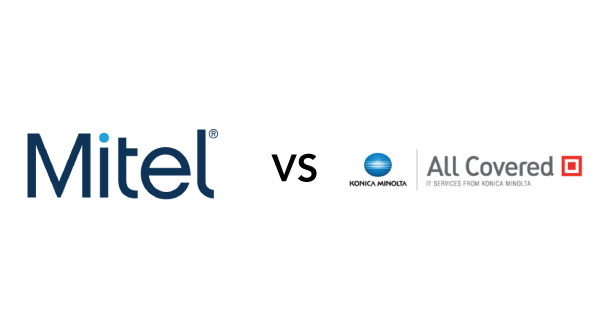11 min read
Best IT Strategies for Law Firms Going Into 2026
Why should a law firm invest in a strong modern IT strategy? Today’s legal teams depend on secure, reliable technology to protect sensitive...
2 min read
 Jason Holmes
May 31, 2021 8:50:33 AM
Jason Holmes
May 31, 2021 8:50:33 AM

Choosing a VoIP provider isn’t easy — there’s so many different options, plans, and associated costs when deciding which service to use. You want to make sure you use a Unified Communications (UC) service provider that doesn’t cost an arm and a leg, but also provides your business with enough functionality.
This is even more important right now, as our remote work situations that we’ve been forced into aren’t projected to end anytime soon. This forced working-from-home time period both requires highly functional and integrated communications, and provides your business with the perfect opportunity for planning your office’s VoIP system when we’re all allowed to go back to work.
So, we’re going to compare two of the more popular VoIP solutions: Mitel, and All Covered.
MITEL VS. ALL COVERED — FEATURES
When it comes to the amount of features made available to you, Konica Minolta’s All Covered system is the clear winner. There isn’t a single feature that Mitel offers that All Covered doesn’t. In addition to this, All Covered is a true cloud based platform, meaning you can access its services anywhere, using the UC-One feature.
Through this UC-One feature, you’re able to share files, share screens, do HD video chats, and even host virtual meetings. This is in addition to normal VoIP services such as do not disturb, instant messaging, call forwarding, and call and message history logs.
While UC-One is a powerful tool for any business, it’s especially important right now, as the UC-One platform gives you the ability to deploy a VoIP system that doubles as a collaboration platform, remotely — meaning no physical installation at the office, and no upgrades necessary for any employees’ home. The only tool someone needs to access your VoIP UC-One system is a smartphone with the All Covered app, and call-forwarding set from their office phone to their personal phone.
While Mitel’s standard VoIp system does have a lot to offer, it doesn’t provide users with functionality like UC-One.
MITEL VS. ALL COVERED — INTEGRATIONS
Again, when on the topic of integrations, All Covered wins hands down. Mitel lacks complete integration with IP endpoints, and SIP (session initiation protocol) managers, due to Mitel’s use of non-standard protocols. A large factor in this lack of integrations is due to a lack of open APIs (application programming interfaces) and no developer ecosystem.
All Covered doesn’t require too many integrations, as its UC-One platform offers many cloud-based solutions, and can take the place of collaboration software like Zoom or Slack. All Covered does, however, offer integrations with ERP (enterprise resource planning) platforms like FORZA and SAP Business One.
ERP integrations allow your VoIP system to communicate with your SAP or FORZA ERP platforms, meaning lots of manual processes, such as CRM tracking, can be automated.
MITEL VS. ALL COVERED — EASE OF USE
If we were still operating under the old normal business practices, and not our new normal, this would be at least up for debate. But for now, at least, and until social distancing guidelines are retracted, Mitel VoIP systems will provide your business with little to no functionality.
All Covered, on the other hand, and it’s UC-One platform, can have your remote team up-and-running within two weeks, without any physical installation of any kind. With the added bonus of file sharing, and collaboration tools, UC-One and All Covered will provide you with more functionality, and allow you to upgrade without needing to bring someone on site.
MITEL VS. ALL COVERED — WHO WINS?
The winner for this round is easily All Covered. While Mitel might offer many of the same functionalities and features as All Covered, it lacks true cloud based services, the integrations All Covered supports, and has no answer to All Covered’s UC-One platform.
For now, and until shelter-in-place orders are rescinded, the only viable VoIP platforms are those that can offer remote set-up, so always make sure to do your research to see if the provider you’re considering is capable of deploying your system remotely.

11 min read
Why should a law firm invest in a strong modern IT strategy? Today’s legal teams depend on secure, reliable technology to protect sensitive...

2 min read
The Louvre’s password became the punchline of a global story after a heist revealed major security concerns for the museum. Reports say the password...

6 min read
Organizations of all sizes handle enormous volumes of data. Data is one of the most valuable assets of any organization.Unfortunately, it’s also a...